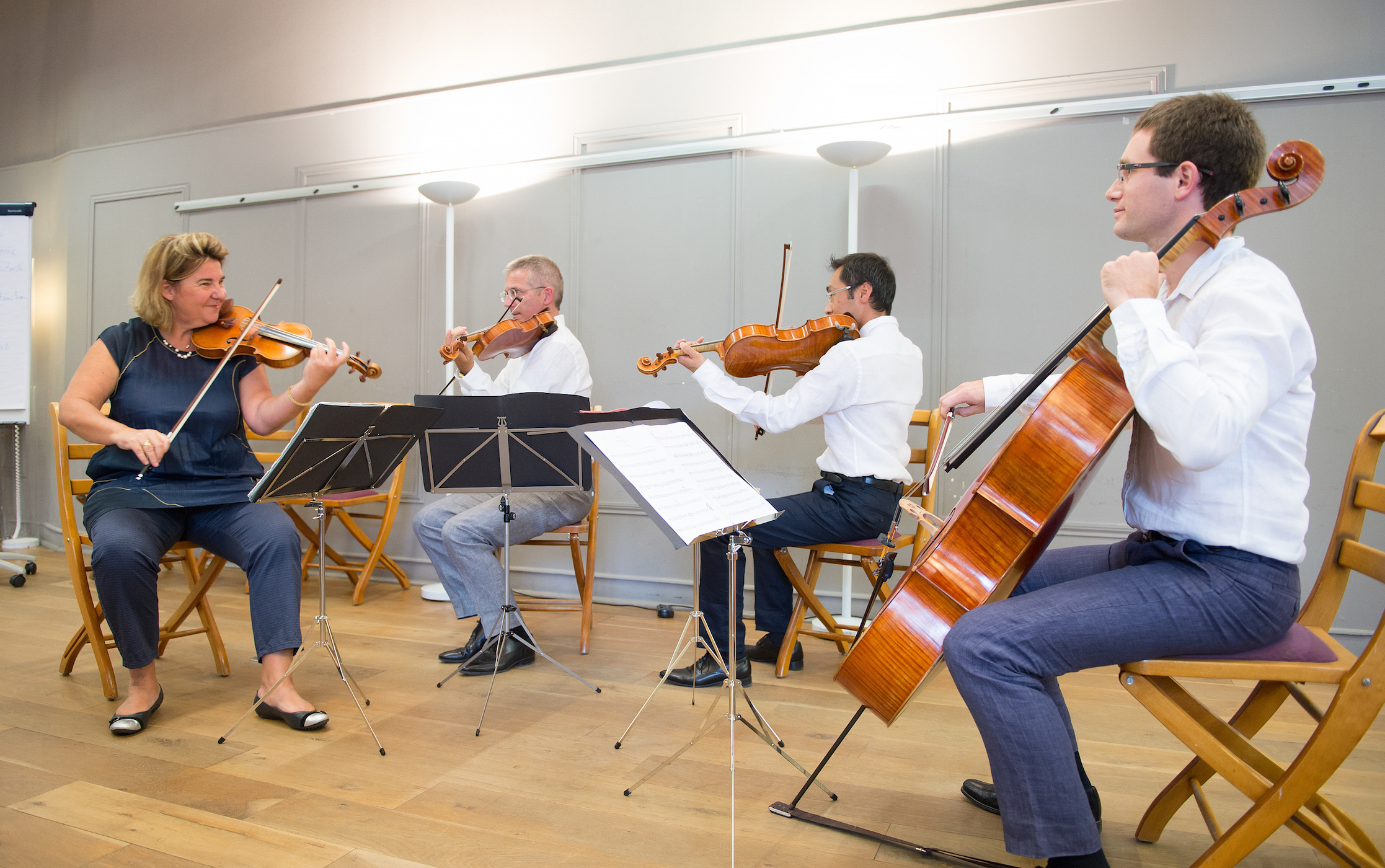Art, Emotion and Management
14 October 2015
Hommes et Projets introduced the Annesci quartet into a seminar where the theme was constructing and sharing VISION within the company. The four musicians, renowned performers, have developed – with their instruments – a unique approach to management seen through an artistic filter. For them it is about suggesting “another vision, that of constructive management, with a strong artistic influence, informative and human [1]”. Drawing on their experience, they observe that the issues faced by a musical ensemble are not so far removed from those faced by a company: common projects and individual expression, autonomy and interdependence, agreements and disagreements, caution and audacity, personal commitment and shared responsibility, application and interpretation, urgency and anticipation. The training participants were won over by this parallel and were full of enthusiasm for the musical performance. From the start, the musical experience has a calming effect, it touches the heart, and leads us into the realm of the emotions. This enjoyable moment allows a bond to be created between individuals, even before creating a meaning.
« Souvent la musique me prend comme une mer » C. Baudelaire
Beneath its apparent simplicity, the music leads us to a deeper meaning. Just like the poetic metaphor speaks to the emotions by awakening the senses, in the same way that painting calls to our subjectivity, the musical phrase carries us away in unison and reunites with harmony. The spontaneous movement of the music gains the public’s unanimous support and commitment. In this climate of trust, of awareness and open-mindedness, the public detects more sharply that which surrounds them and gains in intelligence[2]. Communication is established to such a degree of perfection, that breathing becomes synchronised and energies blend together. The strength of the artistic metaphor lies in its capacity to divert the attention in order to better reach its target/objective.
From emotion to e-motion
Emotion; it is what moves us. At first glance, it seems far removed from the professional and decision-making world. It can even seem to be an obstacle to objective decision making. However, recent neurological studies have shown that “we cannot make rational choices without emotions” [3]. The theory of the American neurologist Mc Lean, validated today by a large number of scientific studies, supports this view. His studies on the evolution of species allow him to maintain that human beings possess three brains: the reptilian, le limbic, and the neo-cortex. Le limbic brain (or emotional brain) steps in to select the best scenarios sent by the cognitive brain during decision-making. The emotional brain gives the advantage to decisions which are in agreement with the interests and values of the individual based on his past experience. Emotion will therefore be closely linked to e-motion, in other words energy in movement (reflexion-decision). Consequently, making ourselves emotionally available and developing our sensitivity would be an ideal to work towards in order to optimise our decision-making, lower our level of stress and increase our efficiency.
[1] Annesci website
[2] The meaning of intelligence here is the capacity to create links between different pieces of information, things and people.
[3] work by Damasio in 1994 at the University of Iowa, USA











